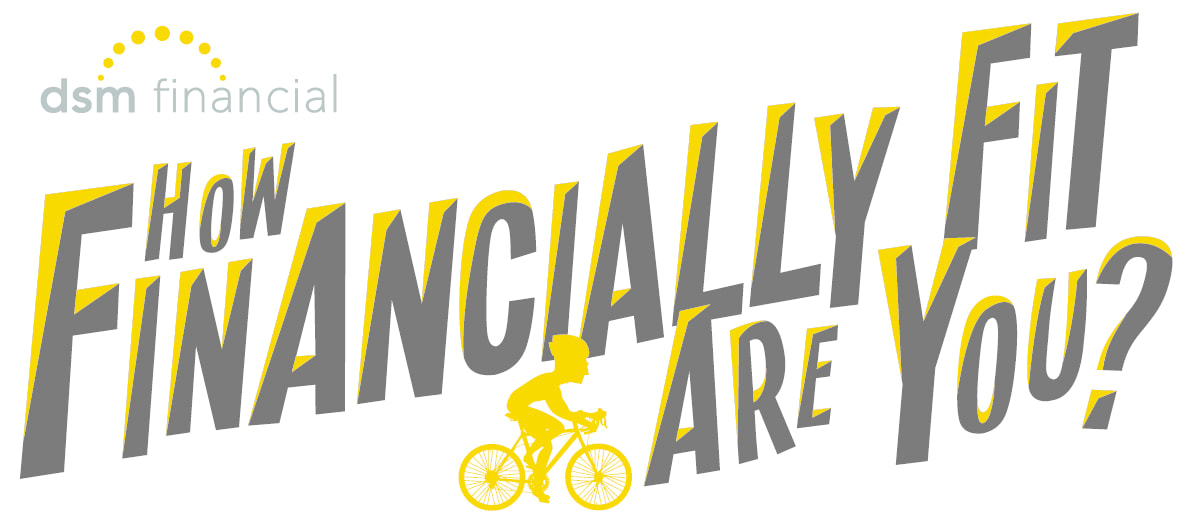|
Retirement is America’s top financial concern. According to a study from Gallup, nearly 60 percent of Americans are worried that they won’t have enough money to retire comfortably.1 Are you a member of that group?
If so, the answer could be as simple as changing your mindset. A new study from Wells Fargo found that those who have a “planning mindset” are 42 percent less likely than those who don’t have a planning mindset to have high levels of financial stress. They also have 3.1 times more in retirement savings.2 How does one develop a planning mindset? Below are a few key steps you can take to change your financial mindset in 2019: Set short-term goals. Researchers found that individuals with a planning mindset are in the habit of setting goals. In fact, they’ve typically set a financial goal within the past six months. Have you done that? And have you taken steps to achieve those goals? Were you successful? If you don’t typically set goals, you may want to get in the habit of doing so. Start with something modest. Pick something that’s achievable but also meaningful. It may be making a regular contribution to a retirement account or paying off a small credit card balance. Once you achieve those small goals, you can move on to something bigger. Work gradually toward long-term goals. Short-term goals are helpful, but long-term goals are also important. Individuals with a planning mindset focus on the long-term. Try making your long-term goals as specific as possible. Don’t just say you want to retire. Instead, try to retire with a certain amount of savings by a specific date. You can then work backward to develop a plan to reach that goal. You also may want to break your long-term goals into manageable pieces. You may find the task of saving for retirement daunting. However, instead of focusing on the total goal, instead set an annual savings goal. By focusing on what you can do today, the goal may seem more realistic and doable. Save for retirement today. There’s no time like the present to save for your future. Individuals with a planning mindset know that time is one of their most powerful financial tools. If you contribute money now, you give those funds the opportunity to grow and compound over a long period of time, which can help you accumulate more assets before retirement. Even a modest contribution is better than nothing. Start by contributing just enough to get your employer match to your 401(k) or employer-sponsored retirement plan. Over time, gradually increase your contributions and also make contributions to an IRA. With compounded growth over a long period of time, you’ll see those contributions start to add up to a significant amount. Ready to adopt a planning mindset in 2019? Let’s talk about it. Contact us today at DSM Financial. We can help you establish goals and develop an action plan. Let’s connect soon and start the conversation. 1https://news.gallup.com/poll/233642/paying-medical-crises-retirement-lead-financial-fears.aspx 2https://www.businesswire.com/news/home/20181114005575/en Licensed Insurance Professional. This information is designed to provide a general overview with regard to the subject matter covered and is not state specific. The authors, publisher and host are not providing legal, accounting or specific advice for your situation. By providing your information, you give consent to be contacted about the possible sale of an insurance or annuity product. This information has been provided by a Licensed Insurance Professional and does not necessarily represent the views of the presenting insurance professional. The statements and opinions expressed are those of the author and are subject to change at any time. All information is believed to be from reliable sources; however, presenting insurance professional makes no representation as to its completeness or accuracy. This material has been prepared for informational and educational purposes only. It is not intended to provide, and should not be relied upon for, accounting, legal, tax or investment advice. This information has been provided by a Licensed Insurance Professional and is not sponsored or endorsed by the Social Security Administration or any government agency. 18280 - 2018/11/28
0 Comments
Are you considering making a sizable financial gift to a friend or family member? A financial gift can be a great way to make a difference in a loved one’s life. It can also be an effective estate-planning strategy, as gifting may potentially remove assets from your estate. That could reduce the amount of assets that face probate and the estate tax.
Gifting could trigger its own set of taxes, though. You may not know gift tax exists or how it works. Depending on the size of your gift, you could face up to a 40 percent gift tax.1 If you fail to pay the tax, the recipient may face additional tax obligations. How can you make your gift without creating additional tax liability? And how do you know if you should worry about the gift tax? Below are a few important facts to keep in mind as you develop your gifting strategy.  Are you starting to think about your legacy and how best to pass your hard-earned assets on to the next generation? You may think that your legacy is something that is distributed after you pass away. However, the idea of early inheritance, or gifting money before death, is growing in popularity. In fact, according to a study from Merrill Lynch, nearly 60 percent of those age 50 and older say they would prefer to give assets to loved ones today rather than in the future.1 Fortunately, the IRS allows you to gift assets to your children, grandchildren, or just about anyone on an annual basis without facing gift taxes. Individuals can give up to $15,000 per year to each recipient while married couples can gift as much as $30,000. Also, gifts don’t count toward the exclusion if they’re used to pay for tuition or medical expenses.2 If you’re considering early inheritance, you may want to meet with a financial professional to develop a strategy and see how it fits with the rest of your plan. Even if you’re not in danger of hitting the gift tax threshold, there are still important points to consider. Below are a few questions to ask: What kind of impact could an early inheritance have for your family? One of your main motivations for giving an early inheritance may be that it’s needed urgently now. For instance, maybe you have a grandchild heading to college who could use his or her inheritance for tuition. Maybe you want to help a grown child fund retirement or overcome financial challenges. An early inheritance also gives you the benefit of seeing your assets put to good use. Although it may feel good to know that your family will receive a windfall after you pass away, you may find it more satisfying to see how they use that money while you are relatively young and healthy. Can you afford to give an early inheritance? Before you start writing checks, be sure that you won’t need the assets in the future. You may think you have plenty of money to fund your remaining years. However, there are potential costs in retirement that may cause unexpected challenges. Fidelity estimates that the average couple will need to spend $280,000 on health care in retirement.3 The U.S. Department of Health and Human Services estimates that 70 percent of retirees will need long-term care, which can often cost thousands of dollars per month.4 If you haven’t addressed these risks, you may want to do so before you implement a gifting strategy. Are there any personal or family issues to consider? Finally, consider what kind of issues your gift may have within your family. While your gift will almost certainly be welcome, there could be underlying issues and feelings that you haven’t considered. For example, have you provided financial help in the past to children or grandchildren? Will other children feel that the gift amount is unfair? Are there children or grandchildren who may not be able to handle the responsibility of a large windfall? These are important questions to consider. You want your gift to have a positive impact, not create conflict and tension. If there are risks associated with your gift, you may want to consult with a financial professional to develop a strategy. Ready to create your gifting plan? Let’s talk about it. Contact us today at DSM Financial. We can help you analyze your needs and implement a strategy. Let’s connect soon and start the conversation. 1https://www.ml.com/articles/why-make-your-heirs-wait.html 2https://www.irs.gov/businesses/small-businesses-self-employed/frequently-asked-questions-on-gift-taxes 3https://www.fidelity.com/viewpoints/personal-finance/plan-for-rising-health-care-costs 4https://longtermcare.acl.gov/the-basics/how-much-care-will-you-need.html Licensed Insurance Professional. This information is designed to provide a general overview with regard to the subject matter covered and is not state specific. The authors, publisher and host are not providing legal, accounting or specific advice for your situation. By providing your information, you give consent to be contacted about the possible sale of an insurance or annuity product. This information has been provided by a Licensed Insurance Professional and does not necessarily represent the views of the presenting insurance professional. The statements and opinions expressed are those of the author and are subject to change at any time. All information is believed to be from reliable sources; however, presenting insurance professional makes no representation as to its completeness or accuracy. This material has been prepared for informational and educational purposes only. It is not intended to provide, and should not be relied upon for, accounting, legal, tax or investment advice. This information has been provided by a Licensed Insurance Professional and is not sponsored or endorsed by the Social Security Administration or any government agency. 18274 - 2018/11/27 |
Archives
July 2020
Categories
All
|
Mike Moller
DSM Financial
DSM Financial
3309 109th Street
Urbandale, IA 50322
Urbandale, IA 50322
515.331.1717
[email protected]
[email protected]
Advisory Services offered through Change Path LLC an Investment Advisor. DSM Financial and Change Path LLC are not affiliated. 17283 - 2018/1/17
Licensed Insurance Professional. Respond and learn how insurance and annuities can positively impact your retirement. This material has been provided by a licensed insurance professional for informational and educational purposes only and is not endorsed or affiliated with the Social Security Administration or any government agency.
Licensed Insurance Professional. Respond and learn how insurance and annuities can positively impact your retirement. This material has been provided by a licensed insurance professional for informational and educational purposes only and is not endorsed or affiliated with the Social Security Administration or any government agency.



 RSS Feed
RSS Feed